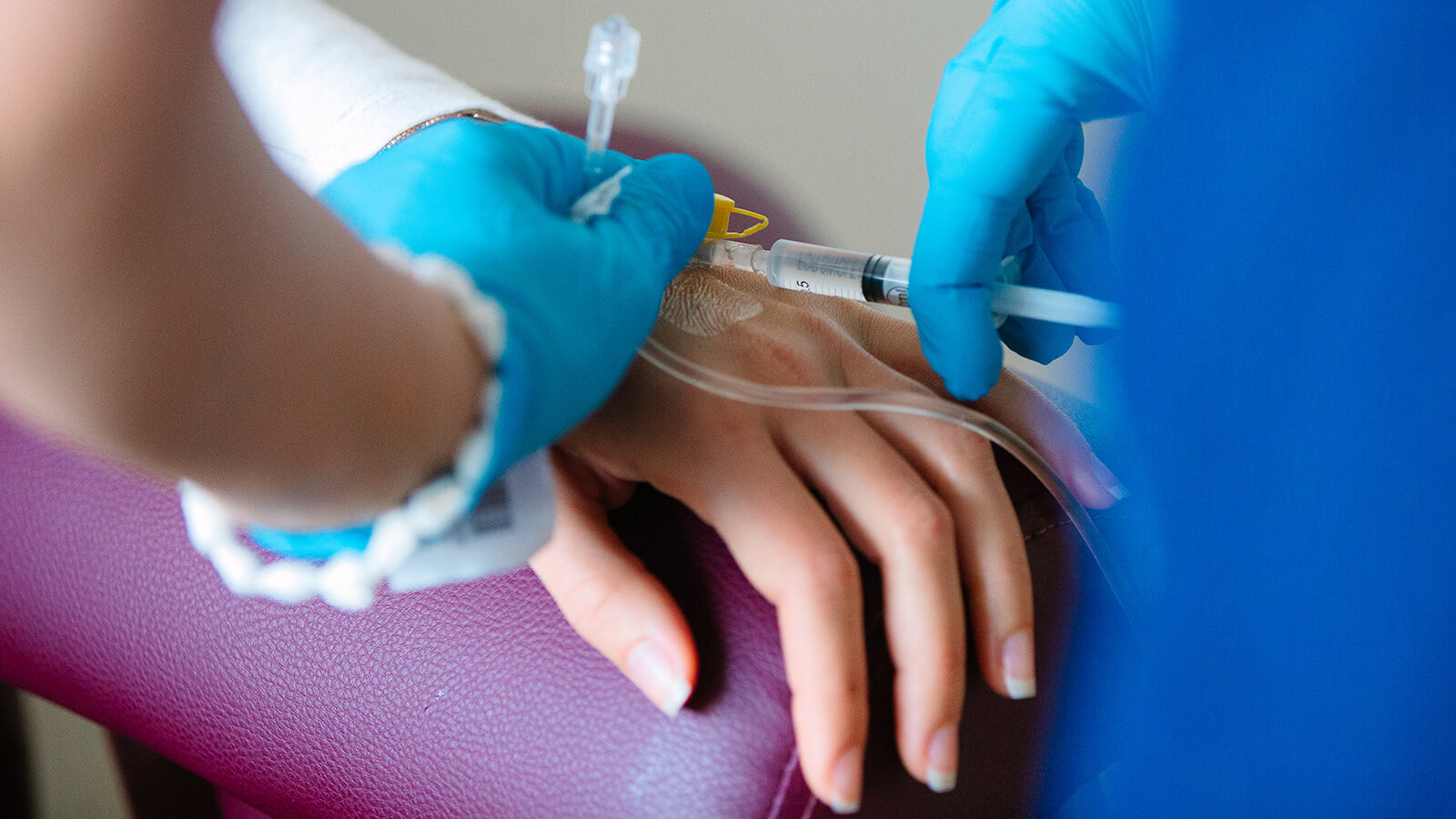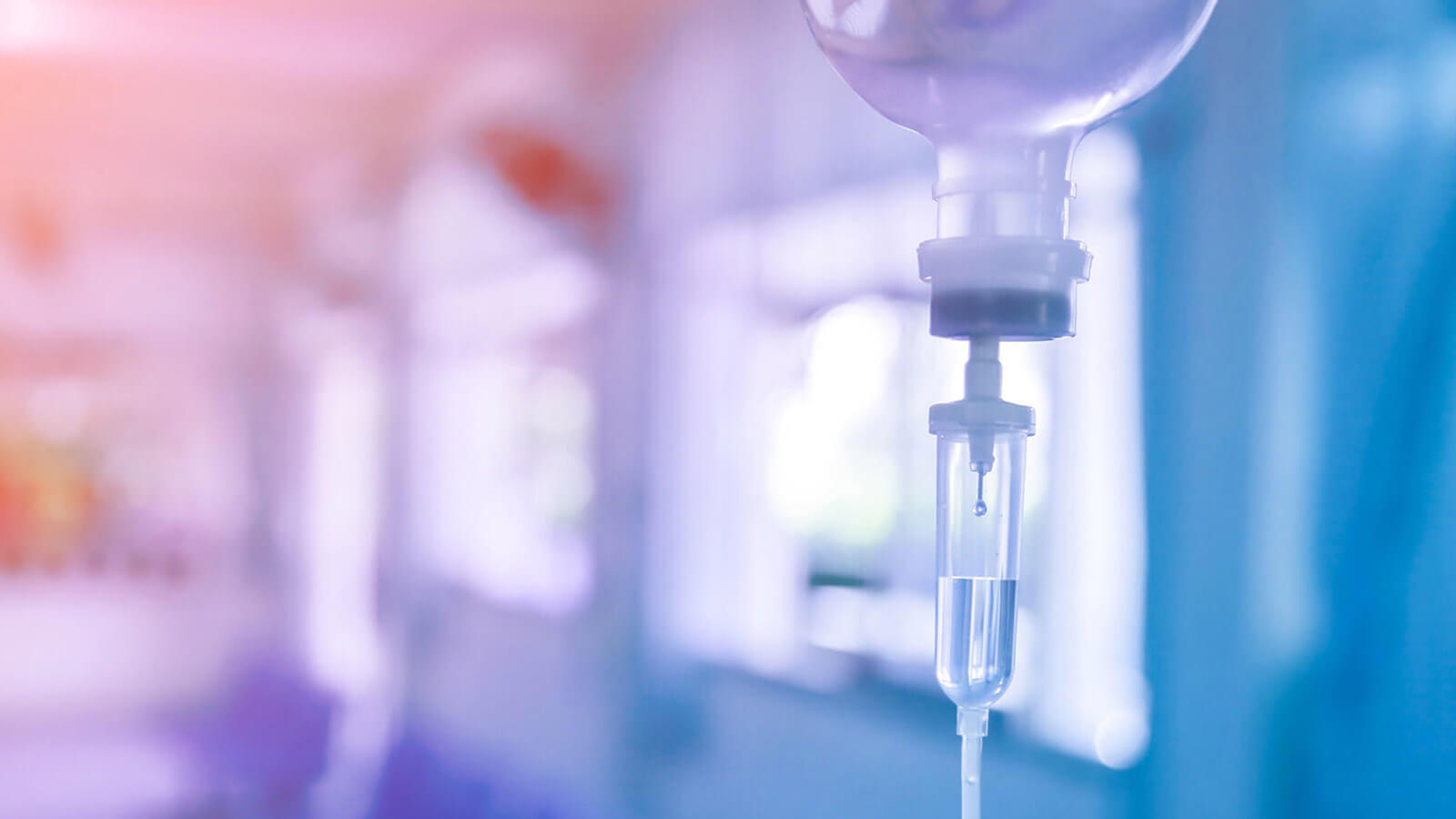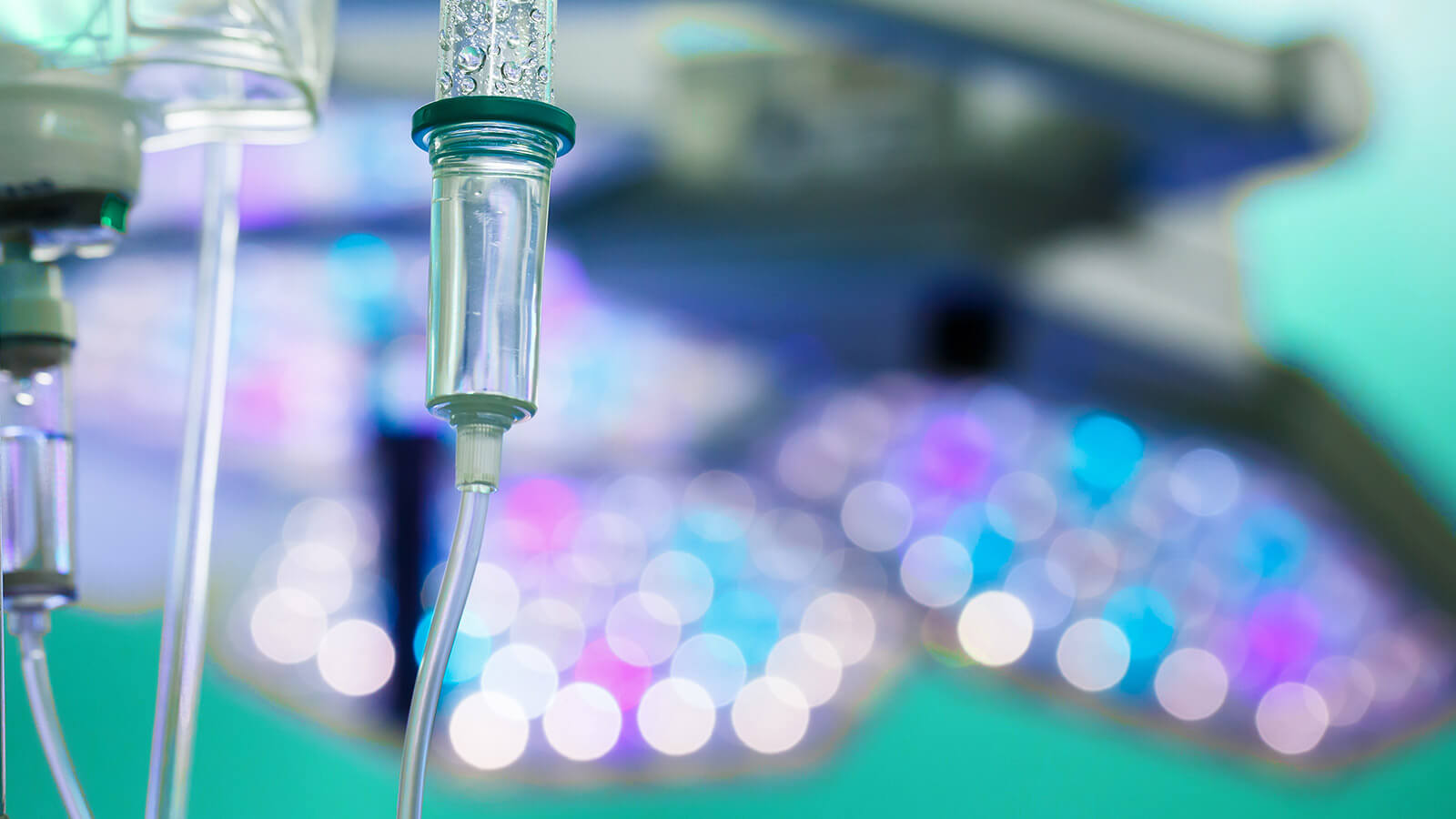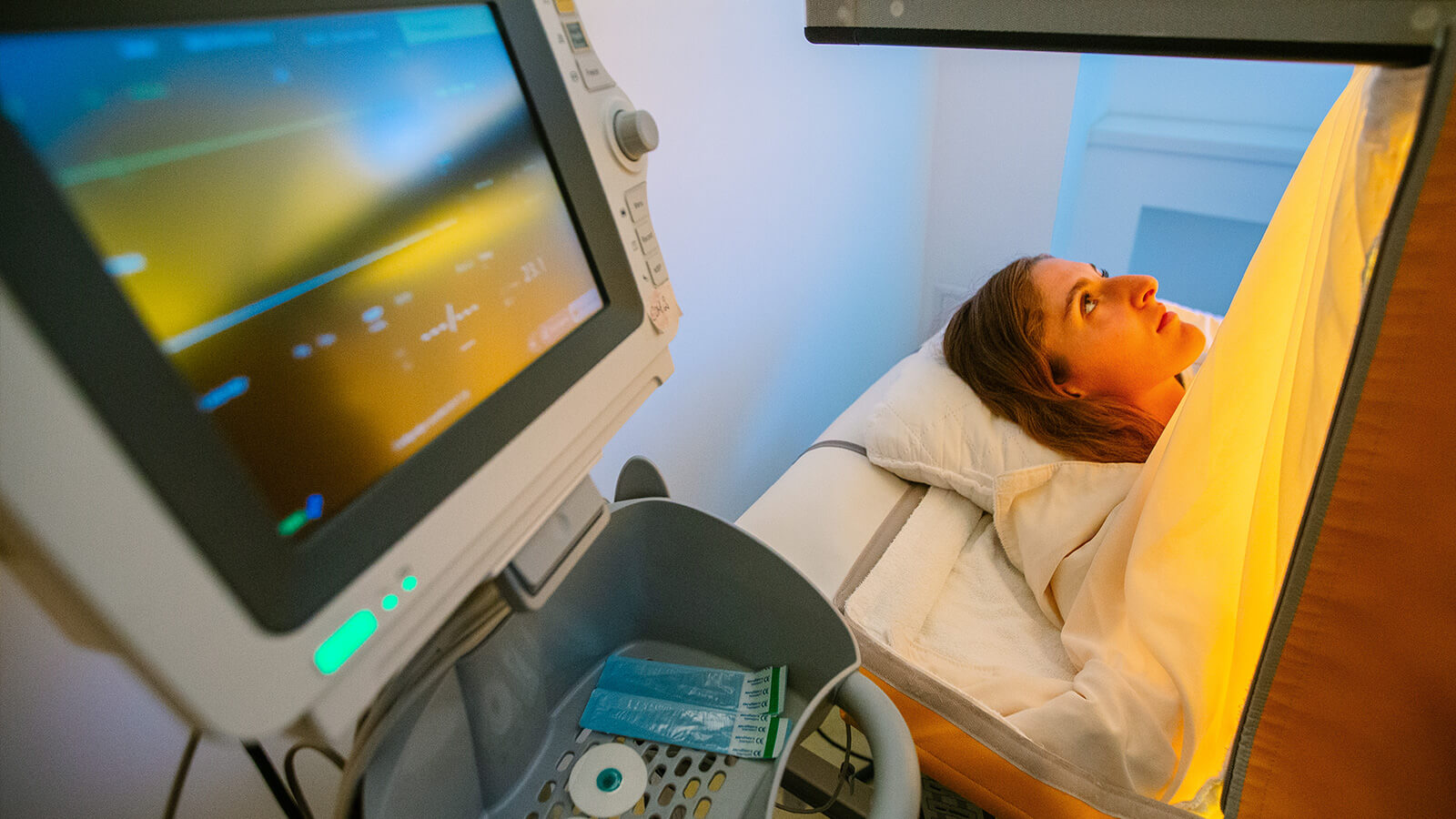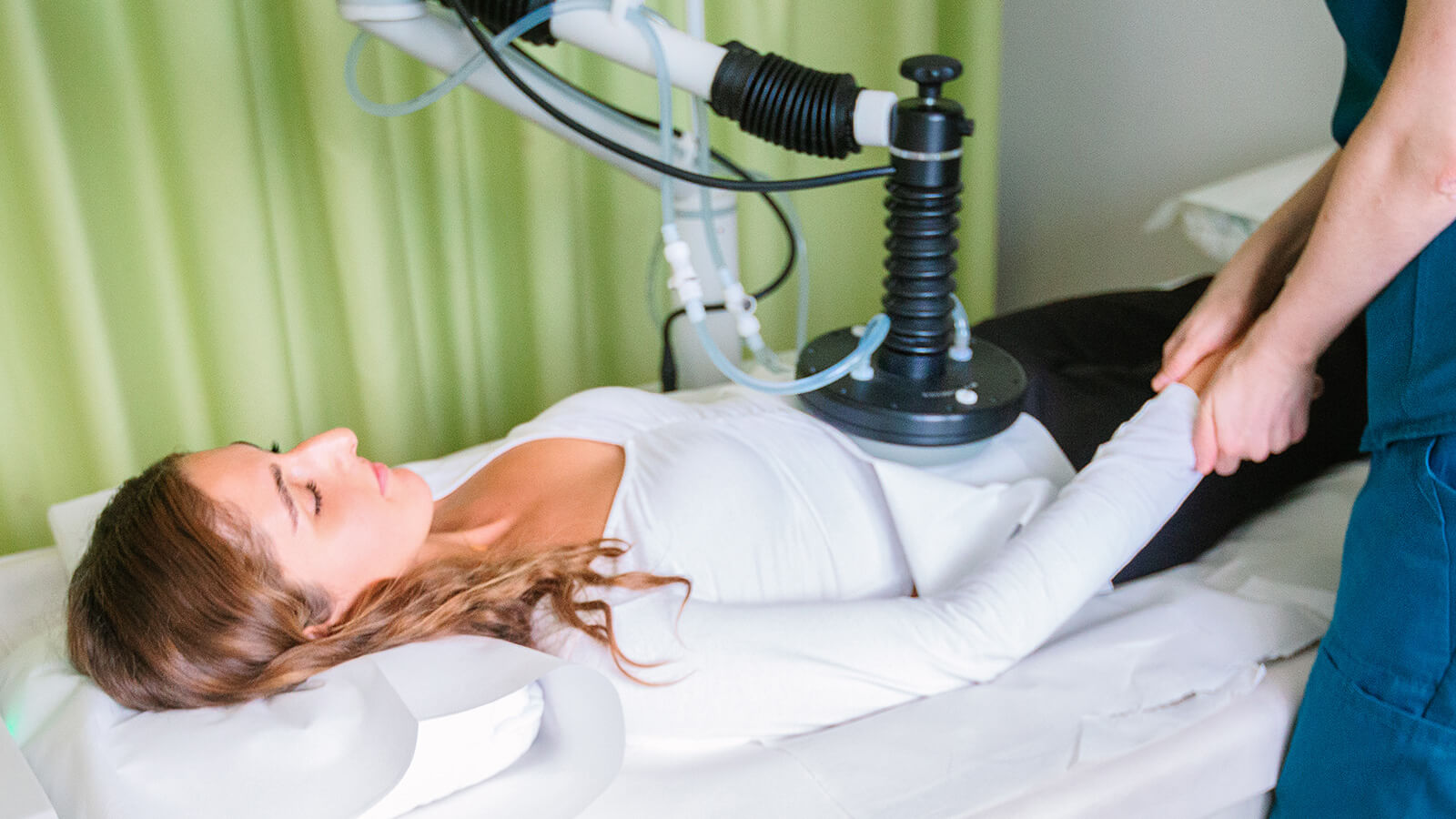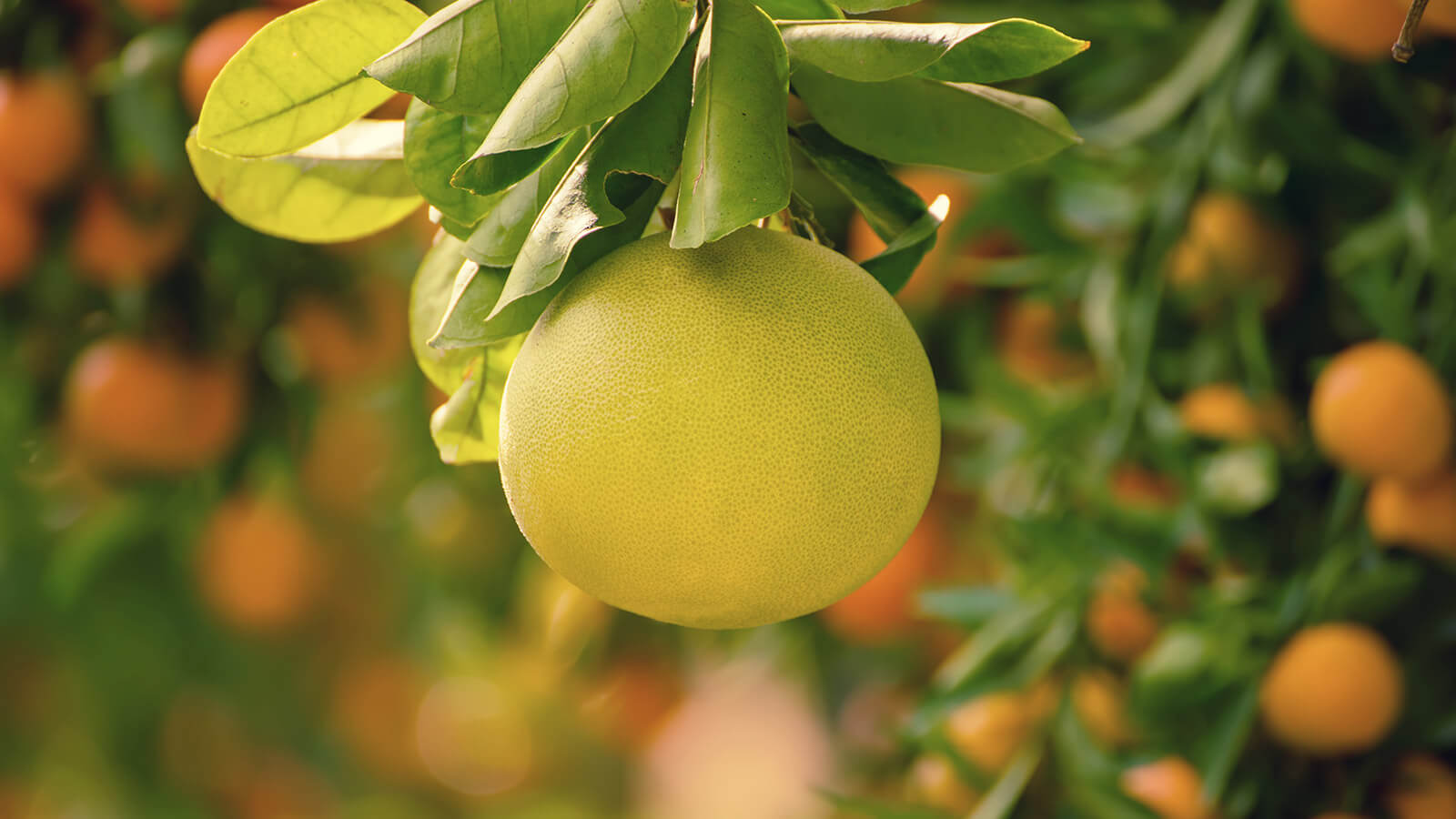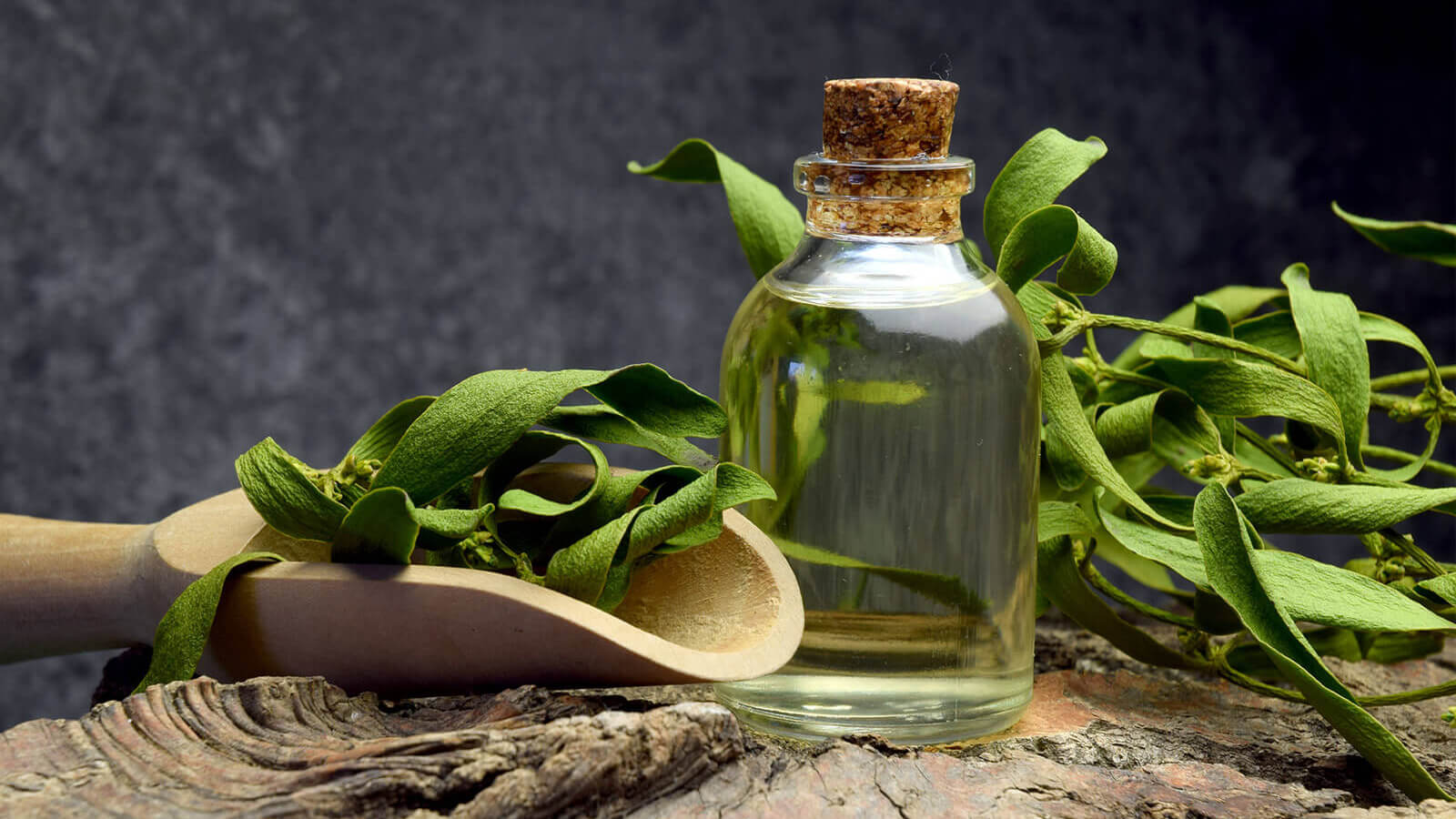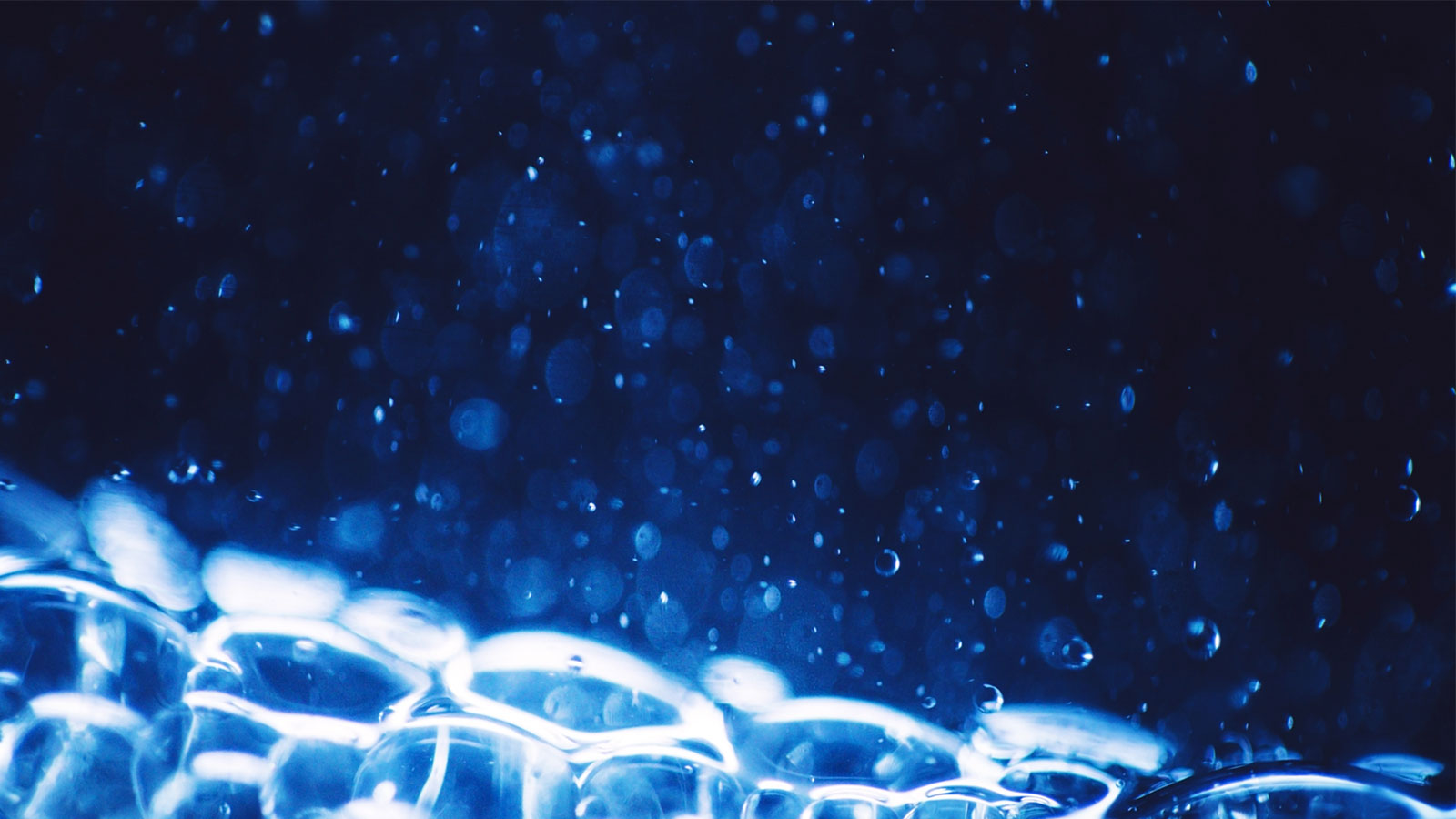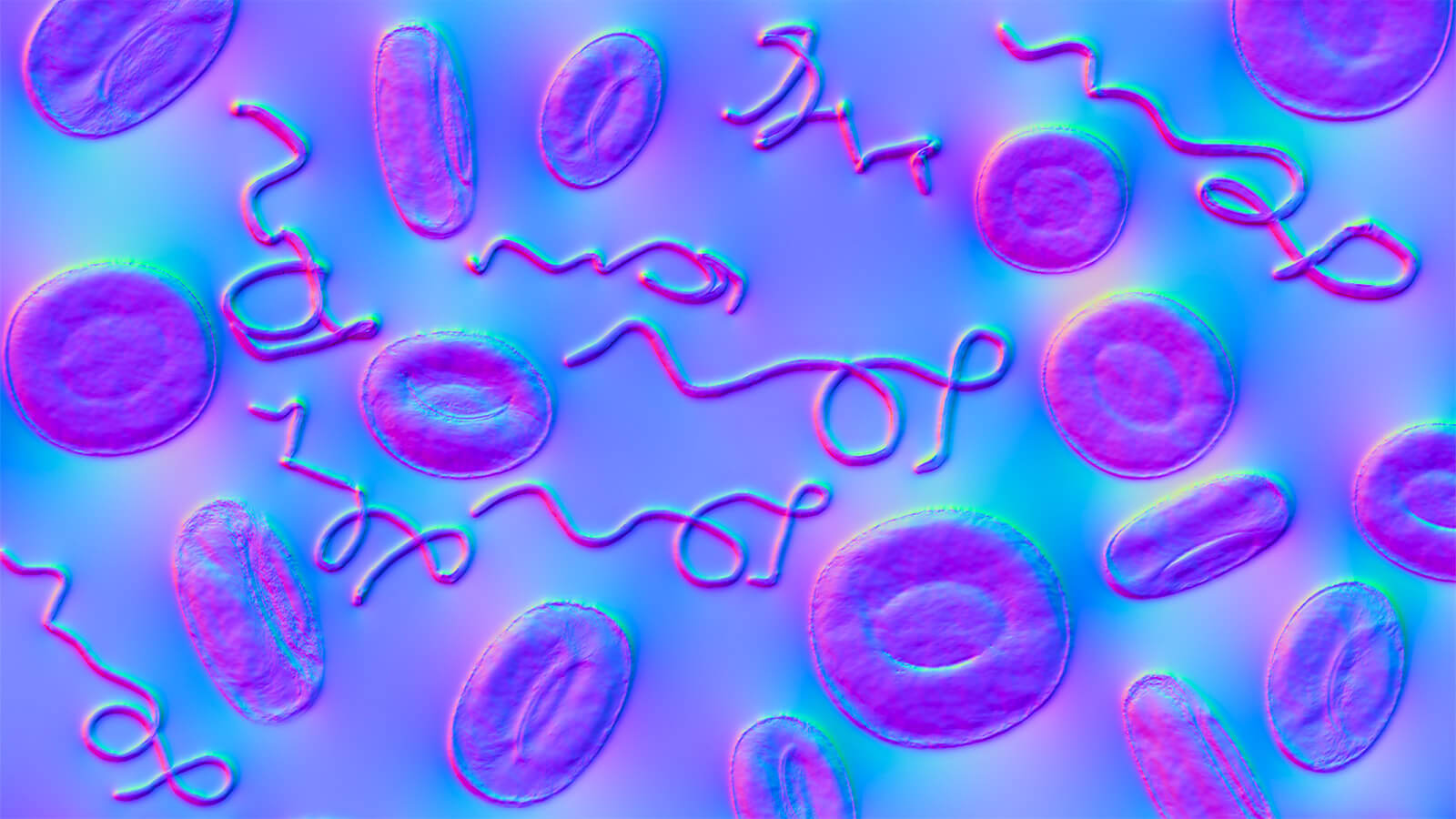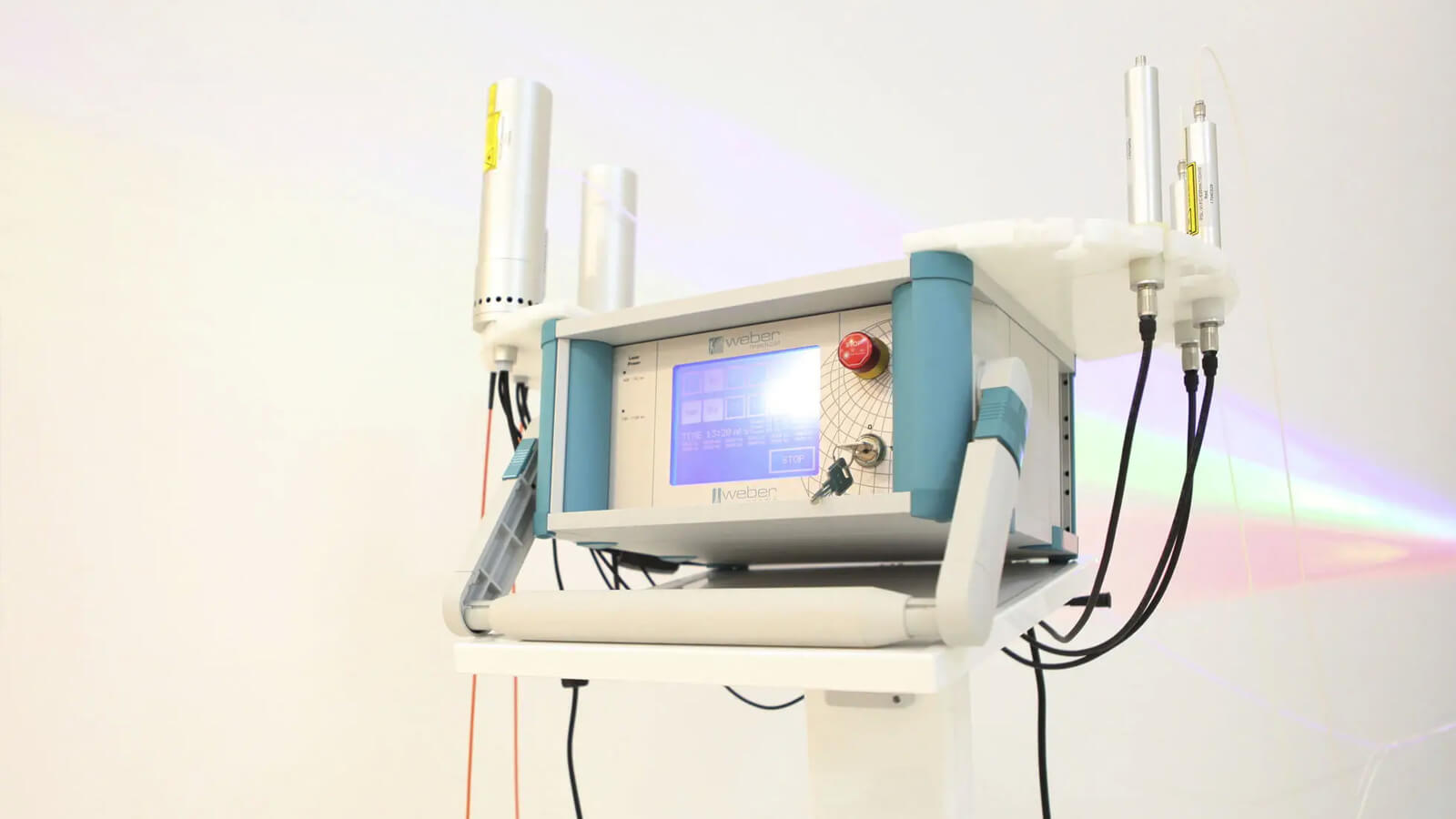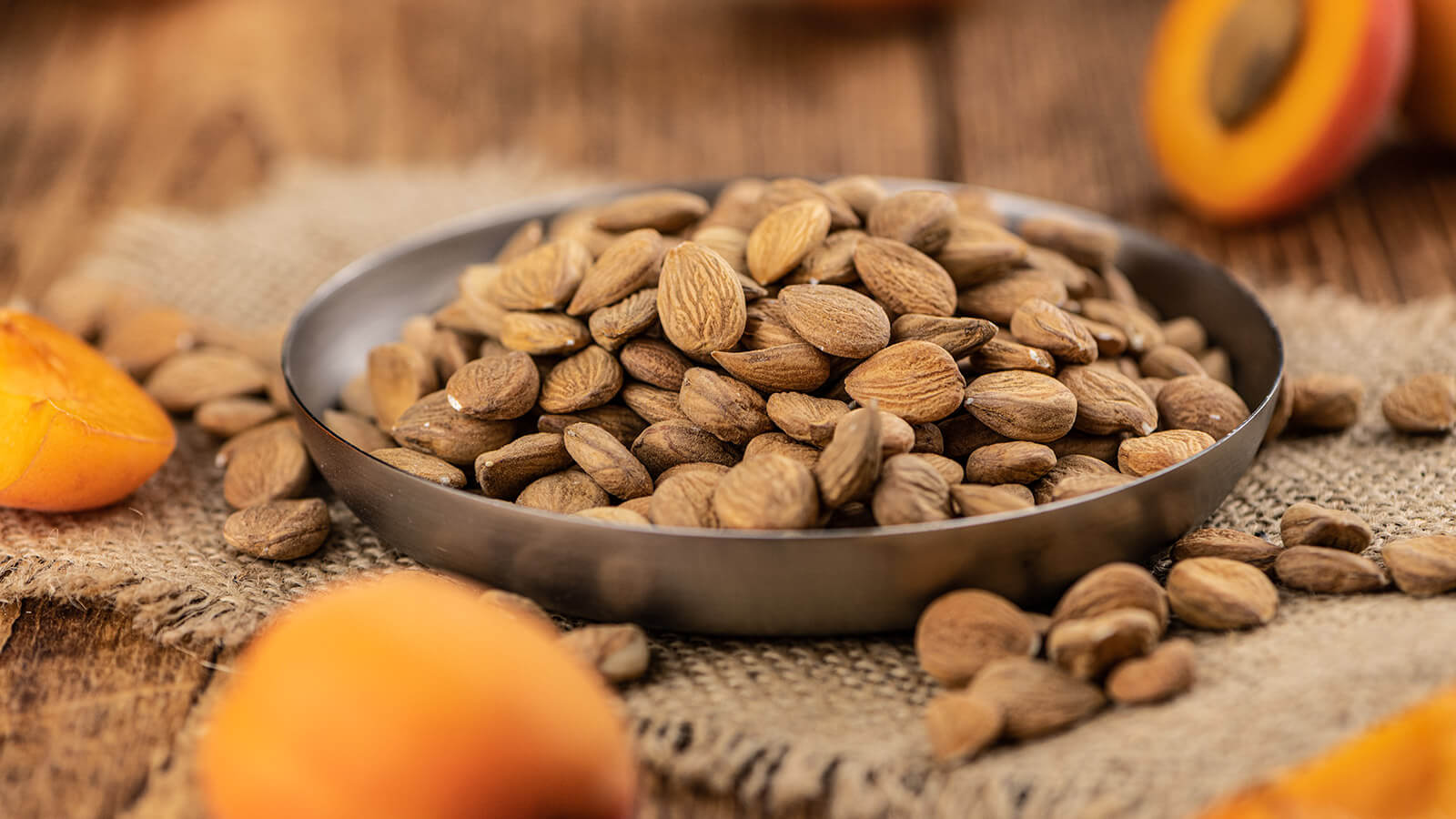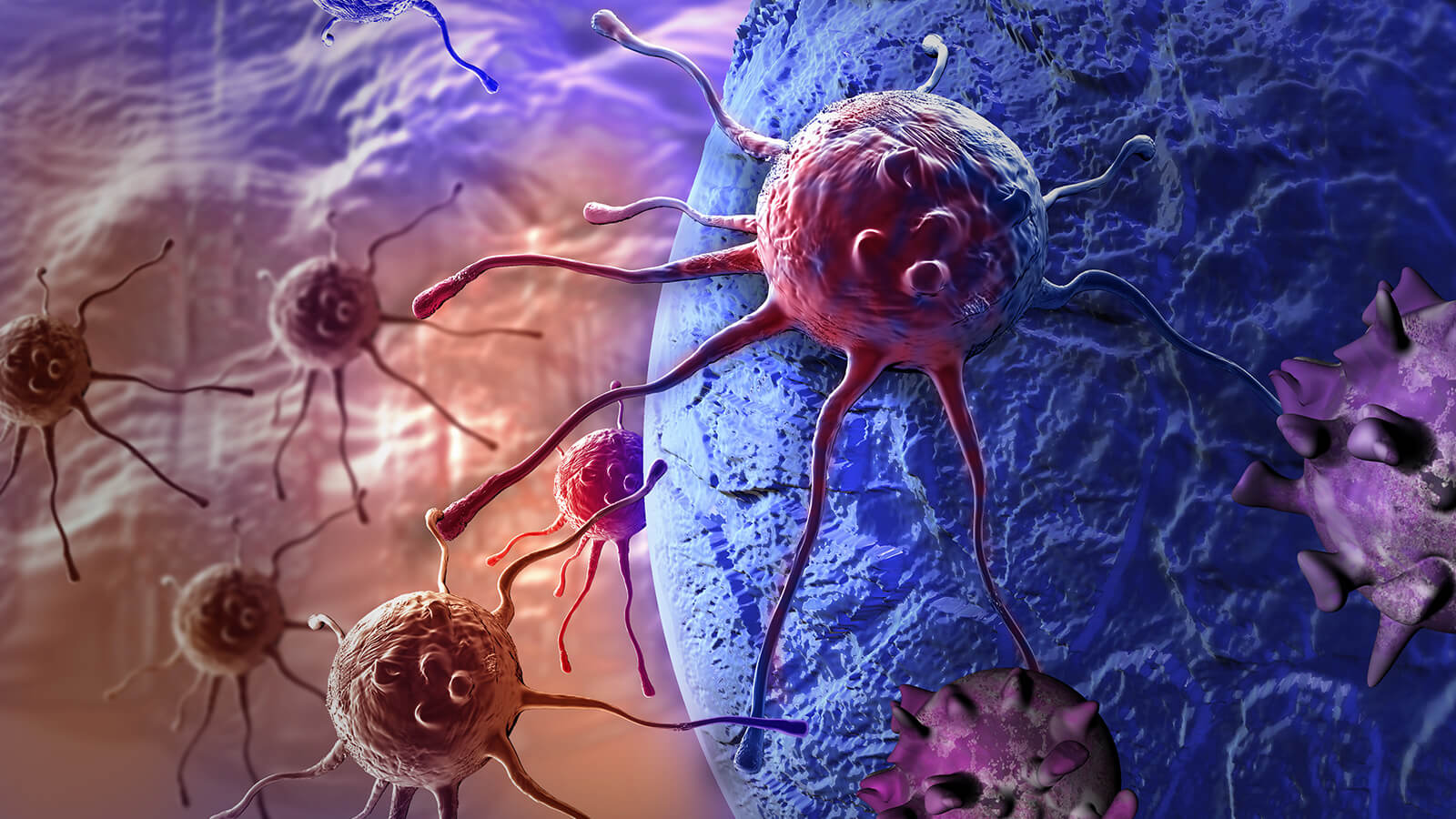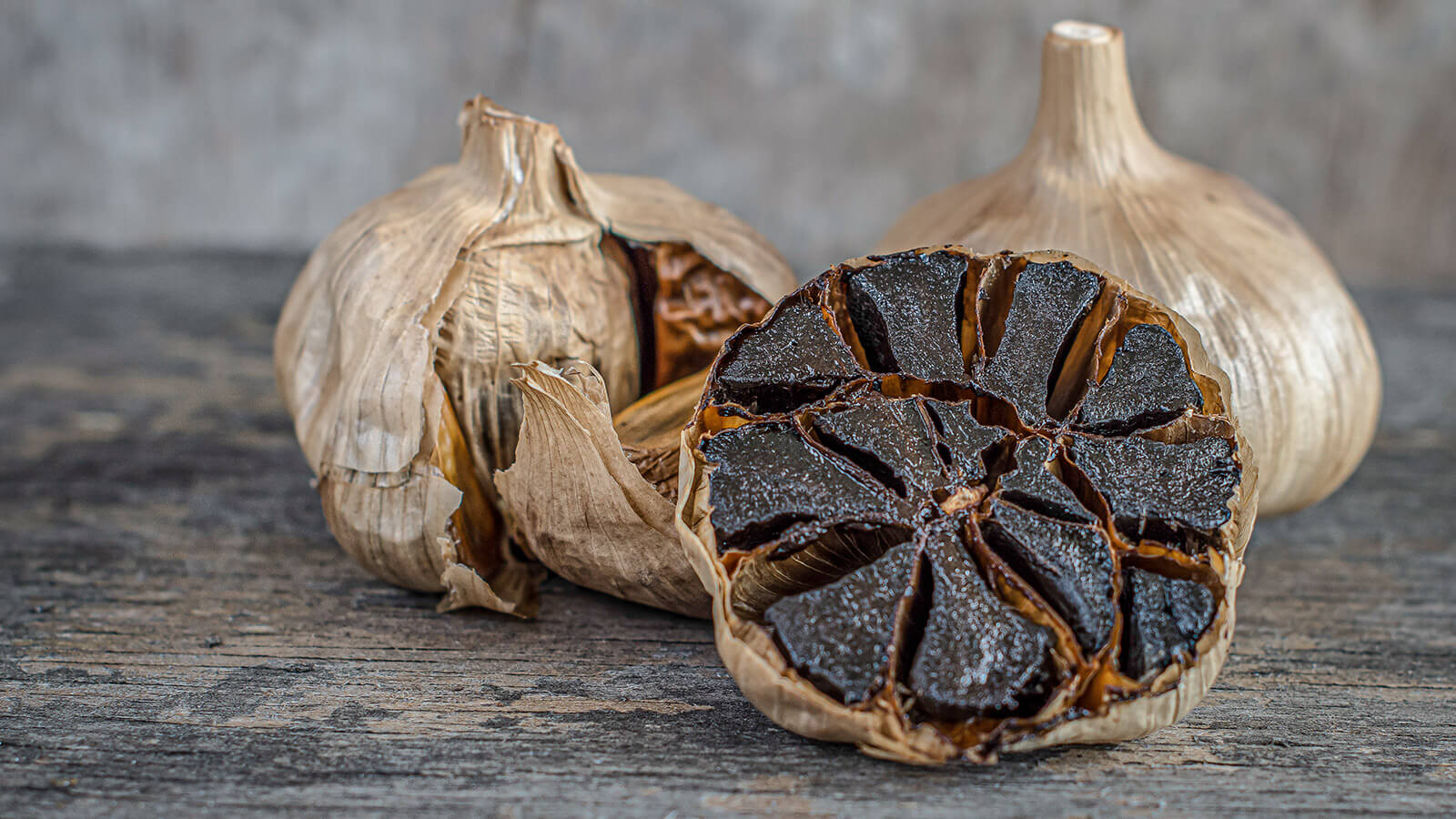
Mistletoe in cancer
Bioactive compounds found in mistletoe include lectins, flavonoids, viscotoxins, oligo-and polysaccharides, alkaloids, membrane lipids, and others 1. Of all these, lectins mediate several immunological activities with direct anti-cancer effects 2.
Major effects of mistletoe administration in cancer
Immunomodulatory effects
- Increases the number of leukocytes, eosinophils and granulocytes and macrophages 3
- Increases cytokine production 4
- Increases the number of lymphocytes 5
- Increases the number of NK (natural killer) cells and their activity 6
- Increases the number of neutrophils and granulocytes 7
- Improves cellular and humoral immunity 8
- Increases the activity of NK immune cells during and after surgery 9
- Enhances dendritic cell maturation 10
- Blocks tumor immunosuppression against dendritic cells 11
Anti-inflammatory action
Mistletoe treatment also proves useful in lowering COX-2 levels, which implies a reduction in procancerous inflammation 12.
Antitumor action
Additionally, studies show that mistletoe has cytotoxic 13, proapoptotic 14 and anti-tumor 15 effects. Down-regulation of PI3K/AKT and MAPK, which are responsible with tumor cell proliferation and survival, is one of the molecular mechanisms behind mistletoe's therapeutic value. By inhibiting AKT phosphorylation, cancer cells undergo apoptosis through down-regulation of BCL2, BCL2L1, MCL1, XIAP, and up-regulation of the proapoptotic protein Bax and cytochrome C.
Increasing the quality of life
The majority of studies show that mistletoe treatment significantly improves cancer patients' quality of life and lessens the side effects of chemotherapy and radiation therapy 16. As a result, studies demonstrate improvements in patients' fatigue and exhaustion, ability to cope with the illness 17, sleep issues, nausea and appetite, depression and anxiety, job capacity, emotional and functional well-being, and so on 18. The most important effect of mistletoe is that it strengthens anti-tumor immunity.
Bibliography
2. Huber, Roman, et al. "Mistletoe treatment induces GM-CSF-and IL-5 production by PBMC and increases blood granulocyte-and eosinophil counts: a placebo controlled randomized study in healthy subjects." European journal of medical research 10.10 (2005): 411.
4. Hajto, Tibor, et al. "Increased secretion of tumor necrosis factor α, interleukin 1, and interleukin 6 by human mononuclear cells exposed to β-galactoside-specific lectin from clinically applied mistletoe extract." Cancer research 50.11 (1990): 3322-3326.
2. Huber, Roman, et al. "Mistletoe treatment induces GM-CSF-and IL-5 production by PBMC and increases blood granulocyte-and eosinophil counts: a placebo controlled randomized study in healthy subjects." European journal of medical research 10.10 (2005): 411.
3. Huber, Roman, et al. "Safety and effects of two mistletoe preparations on production of Interleukin-6 and other immune parameters-a placebo controlled clinical trial in healthy subjects." BMC complementary and alternative medicine 11.1 (2011): 1-12.
4. Hajto, Tibor, et al. "Increased secretion of tumor necrosis factor α, interleukin 1, and interleukin 6 by human mononuclear cells exposed to β-galactoside-specific lectin from clinically applied mistletoe extract." Cancer research 50.11 (1990): 3322-3326.
5. Hoessli DC, Ahmad I. Mistletoe lectins: carbohydrate-specific apoptosis inducers and immunomodulators. Curr Org Chem. 2008;12(11):918–25.
6. Büssing, A., et al. "Development of lymphocyte subsets in tumor patients after subcutaneous administration of mistletoe extracts." Forschende Komplementarmedizin 6.4 (1999): 196-204.
7. Hajto, Tibor. "Immunomodulatory effects of iscador: a Viscum album preparation." Oncology 43.Suppl. 1 (1986): 51-65.
8. Yoon, Taek Joon, et al. "Cellular and humoral adjuvant activity of lectins isolated from Korean mistletoe (Viscum album colaratum)." International Immunopharmacology 1.5 (2001): 881-889.
9. Enesel, Mircea Bogdan, et al. "Perioperative application of the Viscum album extract Isorel in digestive tract cancer patients." Anticancer research 25.6C (2005): 4583-4590; Büssing, Arndt, et al. "Prevention of surgery-induced suppression of granulocyte function by intravenous application of a fermented extract from Viscum album L. in breast cancer patients." Anticancer research 25.6C (2005): 4753-4757; Schink, Michael, et al. "Mistletoe extract reduces the surgical suppression of natural killer cell activity in cancer patients. A randomized phase III trial." Complementary Medicine Research 14.1 (2007): 9-17.
11. Steinborn, Carmen, et al. "Viscum album neutralizes tumor-induced immunosuppression in a human in vitro cell model." PLoS One 12.7 (2017): e0181553.
12. Saha, Chaitrali, et al. "Viscum album-mediated COX-2 inhibition implicates destabilization of COX-2 mRNA." PLoS One 10.2 (2015): e0114965.
13. Ćebović, Tatyana, Slavica Spasić, and Mira Popović. "Cytotoxic effects of the Viscum album L. extract on Ehrlich tumour cells in vivo." Phytotherapy research 22.8 (2008): 1097-1103.
14. Park, Yu-Kyoung, Young Rok Do, and Byeong-Churl Jang. "Apoptosis of K562 leukemia cells by Abnobaviscum F®, a European mistletoe extract." Oncology reports 28.6 (2012): 2227-2232.
15. Han, Seung-Yeon, et al. "Anti-cancer effects of enteric-coated polymers containing mistletoe lectin in murine melanoma cells in vitro and in vivo." Molecular and cellular biochemistry 408.1 (2015): 73-87.
16. Thronicke, Anja, et al. "Clinical safety of combined targeted and Viscum album L. therapy in oncological patients." Medicines 5.3 (2018): 100.
17. Brandenberger, Mathias, et al. "An exploratory study on the quality of life and individual coping of cancer patients during mistletoe therapy." Integrative Cancer Therapies 11.2 (2012): 90-100.
18. Kienle, Gunver S., and Helmut Kiene. "Influence of Viscum album L (European mistletoe) extracts on quality of life in cancer patients: a systematic review of controlled clinical studies." Integrative cancer therapies 9.2 (2010): 142-157.
The therapeutic solutions we provide
Comprise a wide range of conventional, adjuvant and supportive therapies, which integrate medical concepts that have been built on a sturdy scientific basis and on the clinical experience of numerous cancer specialists worldwide.
ImunoMedica patients have access to the latest diagnostic tools, technologies and innovations as well as to the latest and best treatments available, as soon as these are proven to be safe and effective.
How can you become a patient of our clinic?
Throughout the whole process, from your initial contact, through treatment and after you leave our clinic, our patient coordinators will guide you through the steps and support you with all their expertise, attention and kindness.
*
We are here to help you
Our patient coordinator will contact you soon
Phone: +40.771.518.946, e-mail: office@imuno-medica.ro

